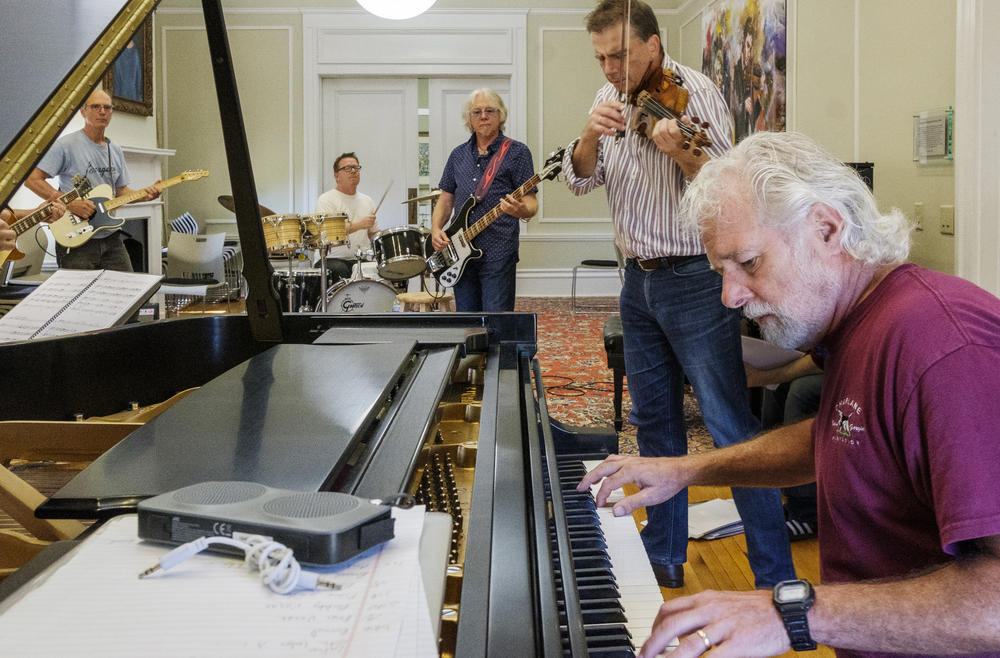
Caption
From right, Rolling Stones touring keyboardist Chuck Leavell, violinist Robert McDuffie, former R.E.M. bassist Mike Mills, drummer Patrick Ferguson and guitarist William Tonks rehearse "A Night Of Georgia Music."
Credit: Grant Blankenship/GPB File Photo

